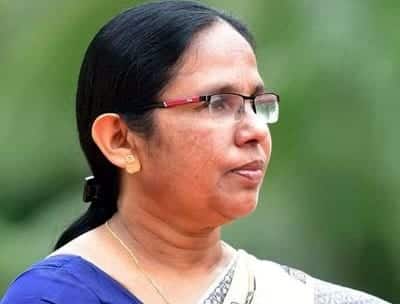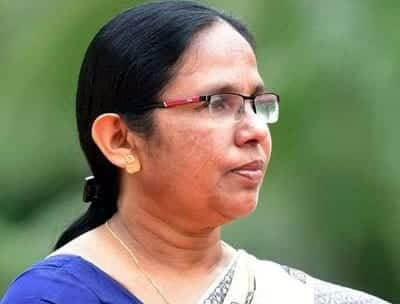
In early May, the Kerala Government’s toll free healthline (Disha-helpline number 1056) received a call from Sreelekshmi of Chennai, who rang in with a COVID-19 query. The operator who answered, cleared Sreelekshmi’s doubts and allayed her fears. She then informed a startled Sreelekshmi that this was the healthline’s 100,000th call, and that she herself was KK Shailaja, the Minister for Health and Social Welfare in the Kerala Government.
KK Shailaja, the Minister has been receiving rave reviews in the world’s press for her handling of the COVID crisis, with epithets such as ‘Rockstar Health Minister’ and ‘Coronavirus Slayer’ being used to describe her.
Only 22 deaths have been reported from Kerala until 23 June – in amongst a total of nearly 15,000 nationwide – even though the first cases in the country were reported from this southern state. (Three students arriving from Wuhan in China in late January had tested positive).
For her proactive efforts in controlling the pandemic, KK Shailaja was honoured on 23 June by the United Nations as it marked Public Service Day. She was one of ten public servants and leaders invited on the occasion to discuss the importance of public service provision during the current pandemic times. The forum examined the various approaches countries have taken during the crisis while looking at what measures they are undertaking to better mitigate such challenges in the future.
“By drawing strengths on the decentralised public health delivery systems in the state, we activated our entire surveillance network the very next day of WHO’s statement of caution on a respiratory virus of pandemic potential,” the 63-year-old Shailaja said in her address.
Despite reporting the first cases in the country, Kerala under Shailaja’s leadership was able to successfully flatten the curve ahead of all other states in the country. Her preemptive strategy of aggressive testing, contact tracing and quarantining won the day, alongside clear communications sent out to the public.
Much of this work is carried out from a COVID-19 control room, operating from the office of the Directorate of Health Services in the state capital Thiruvananthapuram.
The control room was set up on 24 Jan, 6 days before the first ever case in the country was recorded.
“As many as 18 committees are working round the clock to ensure that everything is in place as the state battles the deadly virus,” Shailaja described. “Each committee is headed by a nodal officer who coordinates everything. Every day there are review meetings which take stock of what happened the previous day and plans for the next day.”
It’s in this control room that all the data starting with the coronavirus positives and the suspects are collated. Based on the data, the requirement of PPE kits and medicines is decided. Another important job that it does is facilitate contact tracing, a very crucial aspect in containing the spread of the virus. Some 5 million people have been reached and monitored so far.
Over a 100 professionals, including doctors, health professionals and others, are actively involved in tackling every aspect related to COVID-19.
Each district has been asked to dedicate two hospitals to COVID-19, while each medical college has set aside 500 beds.
The control room communicates with the media in a daily bulletin. Until mid-May, these briefings were conducted by Shailaja herself.
The Health Minister’s commitment, strong work ethic management skills as well as longsightedness have been lauded in the management of the pandemic.
Yet she herself will claim it is because she has had experience.
“Our strength lay in our experience as to how we handled the Nipah outbreak and the floods in 2018,” she has said with humility
Shailaja belongs to the Communist Party of India (Marxist) and is one of two female ministers in the state cabinet. She taught high school science for seven years before becoming a full-time politician, and it was at school that she earned the name Shailaja Teacher, a moniker that has stuck.
It was how she was referred to at the UN virtual meet on 23 June.
READ ALSO: Indian priests wary of sanitisers due to its alcohol content




